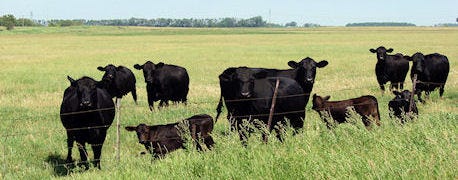July 23, 2013

A bacterial infection that often occurs during drought has claimed cattle in herds in two Arkansas counties, Tom Troxel, associate head-Animal Science for the University of Arkansas System Division of Agriculture, said Thursday.
Deaths were confirmed by the diagnostic lab of the state Livestock and Poultry Commission, he said. The disease is caused by Clostridium chauvoei and could have been prevented by a vaccine, Troxel said.
The infection, typically called "Blackleg," often appears during dry conditions or drought.

Arkansas cattle succumb to 'blackleg' infections
"With the dry conditions and the short supplies of forages, cattle are grazing closer to the ground," he said. "When this occurs, it is common for cattle to ingest small soil particles that may contain the blackleg bacterium."
Blackleg usually affects young cattle between six months and two years of age, but it's not unusual for adult cattle to die from the infection.
"The bacteria can cause severe lameness, depression and fever, but the most common symptom is sudden death," Troxel said. "Other outbreaks of blackleg have occurred following excavation of the soil which suggests that disturbances in the soil may expose and activates blackleg bacterium."
The vaccine to prevent blackleg costs about 70 to 80 cents per dose.
"If you compare the cost of the vaccination to the value of a calf -- $650 to $750 -- it makes perfect sense to vaccinate all calves," he said. "The loss of one calf valued at $700 would pay for 1,000 doses of blackleg vaccine."
As with any medication, it is very important to read and follow the label directions. Some blackleg vacations required two vaccinations 4 to 6 weeks apart. If the label states a second vaccination is required, the second vaccination must be given in order for the calf to be protected. If the second vaccination is not given the calf is not protected against blackleg and is susceptible to the disease.
You May Also Like




